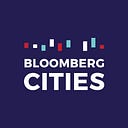9 cities win U.S. Mayors Challenge
Michael R. Bloomberg announced today at CityLab Detroit the nine winners of the Bloomberg Philanthropies U.S. Mayors Challenge, a yearlong competition that challenged city leaders to uncover and test bold, inventive ideas to confront the toughest problems faced by cities today. The nine cities will receive $1 million to begin implementation on potentially breakthrough solutions to homelessness, the opioid crisis, mobility, climate change, and economic opportunity.
The U.S. Mayors Challenge has infused more than $17 million into 300 cities over the past year through idea accelerator workshops and coaching, the testing phase with Champion Cities, and awards to Challenge winners. The program has engaged local leaders across the country to embrace innovation practices and creative problem solving to deliver better results for residents. The Mayors Challenge is part of the American Cities Initiative, a suite of investments to strengthen city halls and advance critical policies
“Mayors across the country are tackling the big issues that Washington is ignoring. This competition is designed to help them do even more, by incentivizing and supporting big — and achievable — new ideas,” said Michael R. Bloomberg, founder of Bloomberg Philanthropies and three-term mayor of New York City. “Congratulations to all of the winning mayors, who represent cities large and small, in regions across the country. We look forward to seeing the results of their work — and to helping the ideas that prove most effective spread far and wide.”
[Get the latest innovation news from Bloomberg Cities! Subscribe to SPARK.]
The U.S. Mayors Challenge winners are:
- Denver will work to improve air quality by installing cutting-edge air-pollution sensors around schools that will provide data to inform the city’s approach to making the air safer for all.
- Durham, N.C. will work to get drivers out of their cars and into alternative modes of transit by incentivizing behavior change, for example with prizes.
- Fort Collins, Colo. will work to make housing safer and more energy efficient for low-income renters by offering landlords a creative mix of low-cost financing, simplified underwriting, and pre-screened contractors.
- Georgetown, Texas will become the first energy-independent community in the country by partnering with residents to install solar panels and battery storage at their homes.
- Huntington, W.Va. will support first responders on the front line of the opioid crisis by embedding mental healthcare professionals within emergency response departments, ensuring that first responders are able to give the best care possible to opioid users.
- Los Angeles will develop a new way for residents to help solve the city’s homelessness crisis by building additional units of housing on their property and renting them to Angelenos who are homeless or at risk of homelessness for an agreed upon period of time.
- New Rochelle, N.Y. will improve development projects by using virtual reality technology to clearly present plans for new buildings and public spaces to residents.
- Philadelphia will work to make the justice system less traumatic for young people under 18 by creating new facilities specifically designed to address trauma and connect kids with resources rather than sending them to regular police stations.
- South Bend, Ind. will help low-income and part-time workers with unreliable transport options commute to their jobs by partnering with ride-share companies and employers, who will help offset the cost.
The Mayors Challenge Selection Committee, co-chaired by Former Ambassador Caroline Kennedy and Ursula Burns, Executive Chairman of Veon Ltd and Former Chairman and CEO of Xerox Corporation, is comprised of distinguished policy experts, artists, academics, business executives, and social innovation leaders. The committee evaluated the cities’ applications based on their idea’s vision, potential for impact, implementation plan, and potential to spread to other cities to choose the nine winning cities.
[Read: How this year’s Mayors Challenge winners rose to the top]
New to the Mayors Challenge this year was a six-month “test and learn” phase where each of the 35 Champion Cities received up to $100,000 and technical assistance to test and build support for their ideas. Cities tested core components of their ideas with residents, improved and refined their proposals, and developed a plan for implementation and impact measurement.
The testing phase of the competition sought to bring prototyping and small-scale implementation, common innovation practices in the private sector, to city halls across the country. It also allowed the Champion Cities to conduct over 100 tests that involved more than 4,000 city hall staff and engaged 15,000 residents. The cities raised over $15 million in outside funding, effectively doubling the investment by Bloomberg Philanthropies.
[Read: Unleashing the power of public prototyping]
The U.S. Mayors Challenge builds on the success of previous Bloomberg Philanthropies-sponsored Challenges in the U.S. (2013), Europe (2014), and Latin America and the Caribbean (2016). Previous Mayors Challenge winners include São Paulo, Brazil, with a program to increase farmers’ income and reduce urban sprawl; Barcelona, Spain, for work to create digital trust networks that support at-risk elderly citizens; and Providence, R.I., for a program to measure and reduce the “word gap” among low-income children during pivotal brain development years.
